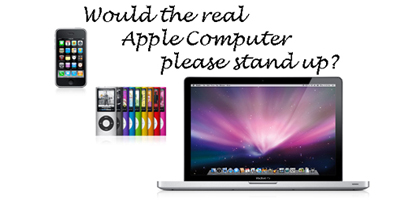Every now and then I get asked the question, what is mobile unified communications and why should I care? Mobile…
Read MoreFixed Mobile Convergence
Fixed Mobile Convergence is a telecom phenomenon most frequently referring to the conversion of a cellular call in progress to…
Read More
MOT: Stuck in Reverse
According to the Wall Street Journal article, Apple, RIM Outsmart Phone Market, (sub. required) by Sara Silver, the smartphone companies…
Read More
Apple: iPhone Up, iPod and Macs Down
Apple is in quite a situation. The Wall Street Journal article, “Apple Net Up 15% on iPhone Surge” by Ykari…
Read MoreCalendar Integration
Calendar integration for one-click conference call initiation – the mobile user’s calendar presents a single click option to initiate the…
Read More




